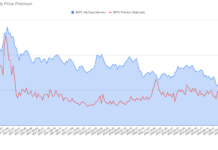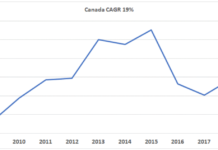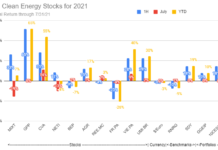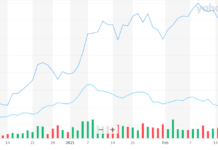Tom Konrad CFA
Many people consider themselves to be moral, but also feel morality has no place in investing.
There is much argument about whether “Socially Responsible Investing” helps or harms returns, but it is not a moral argument. Some people believe gambling is immoral, others don’t. Neither group makes a distinction between the morality of gambling winnings and gambling losses.
The main moral argument people make against socially responsible investing is that buying or selling a few shares of stock won’t have a real effect on giant corporations. The added emotional distance many people get from investing through mutual funds or ETFs makes this easier to believe.
The question deserves direct scrutiny:
Do the stocks or mutual funds we buy affect the management of the companies we invest in?
This question has two parts.
- Do our investments affect stock prices?
- Does the stock price affect management behavior?
A company’s stock price is the net result of all investors’ decisions. We’re really asking if a single purchase has a significant effect. This is like asking if throwing a hamburger wrapper out our car window makes a difference. It’s wrong, regardless of if the road is covered with trash or pristine. A litterbug may be subject to legal fines, but the limited liability structure of modern corporations protects investors from the legal (but not financial) consequences of corporate behavior. If there is such a moral structure, it is the belief that our investments don’t make a difference in corporate behavior.
How much a company’s stock price affects its behavior depends on how much it needs money. Certain types of companies, like Master Limited Partnerships and Real Estate Investment Trusts must return profits to investors. Others are not profitable enough to fund planned investments. If such companies want to survive or grow, they must obtain the funding from investors. The stock price is always important to such companies because it determines how much control and what share of future profits they must exchange for the needed funds.
For all companies, including profitable ones, a high stock price increases management pay via share options and stock ownership. A low stock price makes a company vulnerable to activist investors and hostile takeover bids. These seek to influence management, or replace it altogether. Managers like high pay, autonomy, and keeping their jobs. If they expect a business decision will cause investors to sell, they will avoid it.
In short, our investments collectively set the stock price, and the stock price influences corporate behavior. The same applies to bonds and other securities, through the interest rates companies pay.
We may be tiny actors on a giant stage, both in our personal lives and our financial lives. We don’t litter even if we think no one will notice, and we shouldn’t buy companies that do harm even if we think our a single purchase won’t get management’s attention.
Collectively, we have power. With collective power comes collective responsibility.
This article was first published on the author’s Forbes.com blog, Green Stocks on March 16th.








